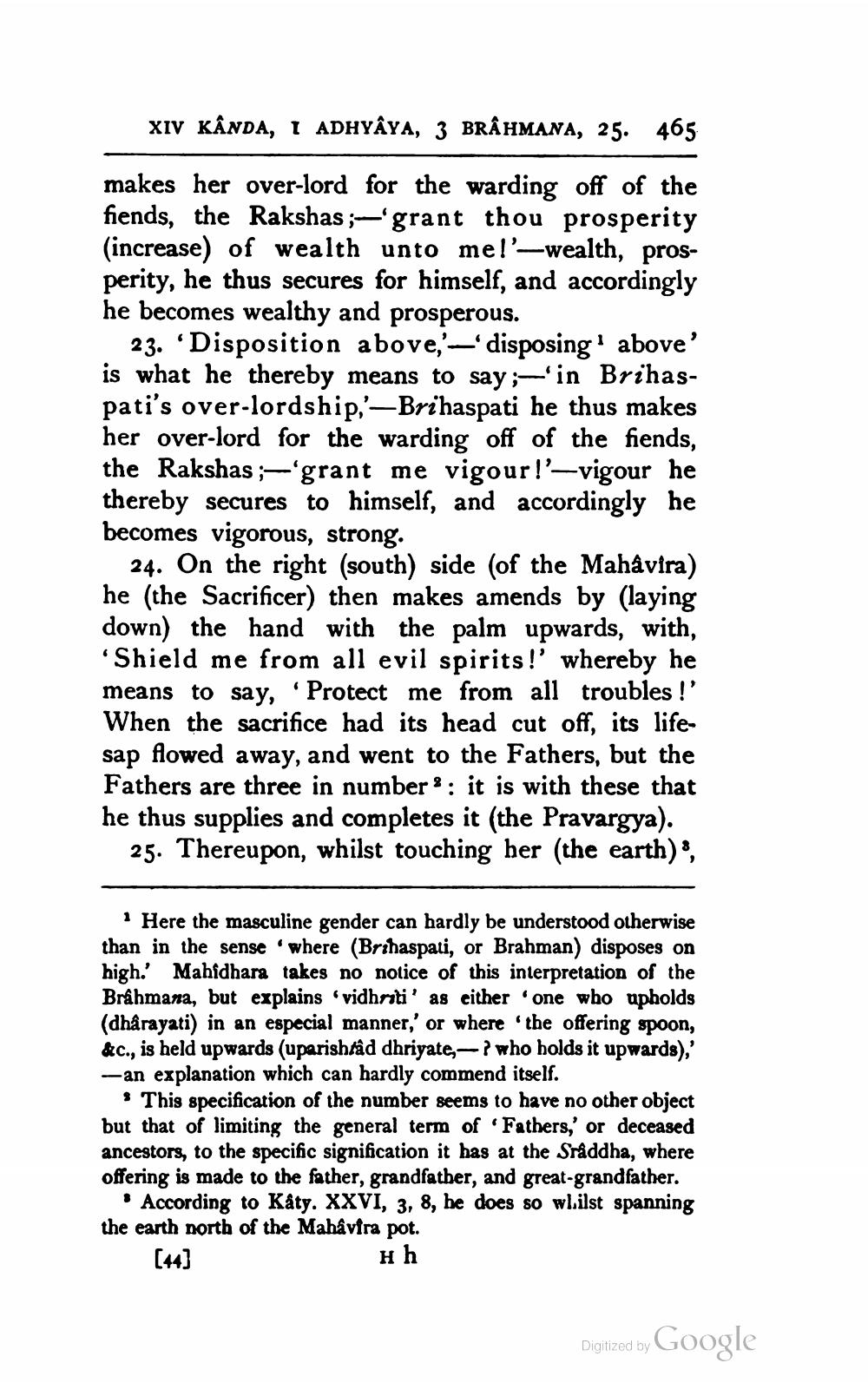________________
XIV KÂNDA, I ADHYAYA, 3 BRAHMANA, 25. 465
makes her over-lord for the warding off of the fiends, the Rakshas;-'grant thou prosperity (increase) of wealth unto me!'-wealth, prosperity, he thus secures for himself, and accordingly he becomes wealthy and prosperous.
23. 'Disposition above,'-' disposing' above' is what he thereby means to say;-'in Brihaspati's over-lordship,'-Brihaspati he thus makes her over-lord for the warding off of the fiends, the Rakshas;-'grant me vigour!'-vigour he thereby secures to himself, and accordingly he becomes vigorous, strong.
24. On the right (south) side (of the Mahâvira) he (the Sacrificer) then makes amends by (laying down) the hand with the palm upwards, with, 'Shield me from all evil spirits!' whereby he means to say, 'Protect me from all troubles!' When the sacrifice had its head cut off, its lifesap flowed away, and went to the Fathers, but the Fathers are three in number 2: it is with these that he thus supplies and completes it (the Pravargya).
25. Thereupon, whilst touching her (the earth)3,
1 Here the masculine gender can hardly be understood otherwise than in the sense where (Brihaspati, or Brahman) disposes on high.' Mahidhara takes no notice of this interpretation of the Brahmana, but explains 'vidhriti' as either one who upholds (dhârayati) in an especial manner,' or where the offering spoon, &c., is held upwards (uparishtâd dhriyate,- ? who holds it upwards),' -an explanation which can hardly commend itself.
This specification of the number seems to have no other object but that of limiting the general term of Fathers,' or deceased ancestors, to the specific signification it has at the Srâddha, where offering is made to the father, grandfather, and great-grandfather. According to Kâty. XXVI, 3, 8, he does so whilst spanning the earth north of the Mahavira pot.
[44]
Hh
Digitized by
Google




